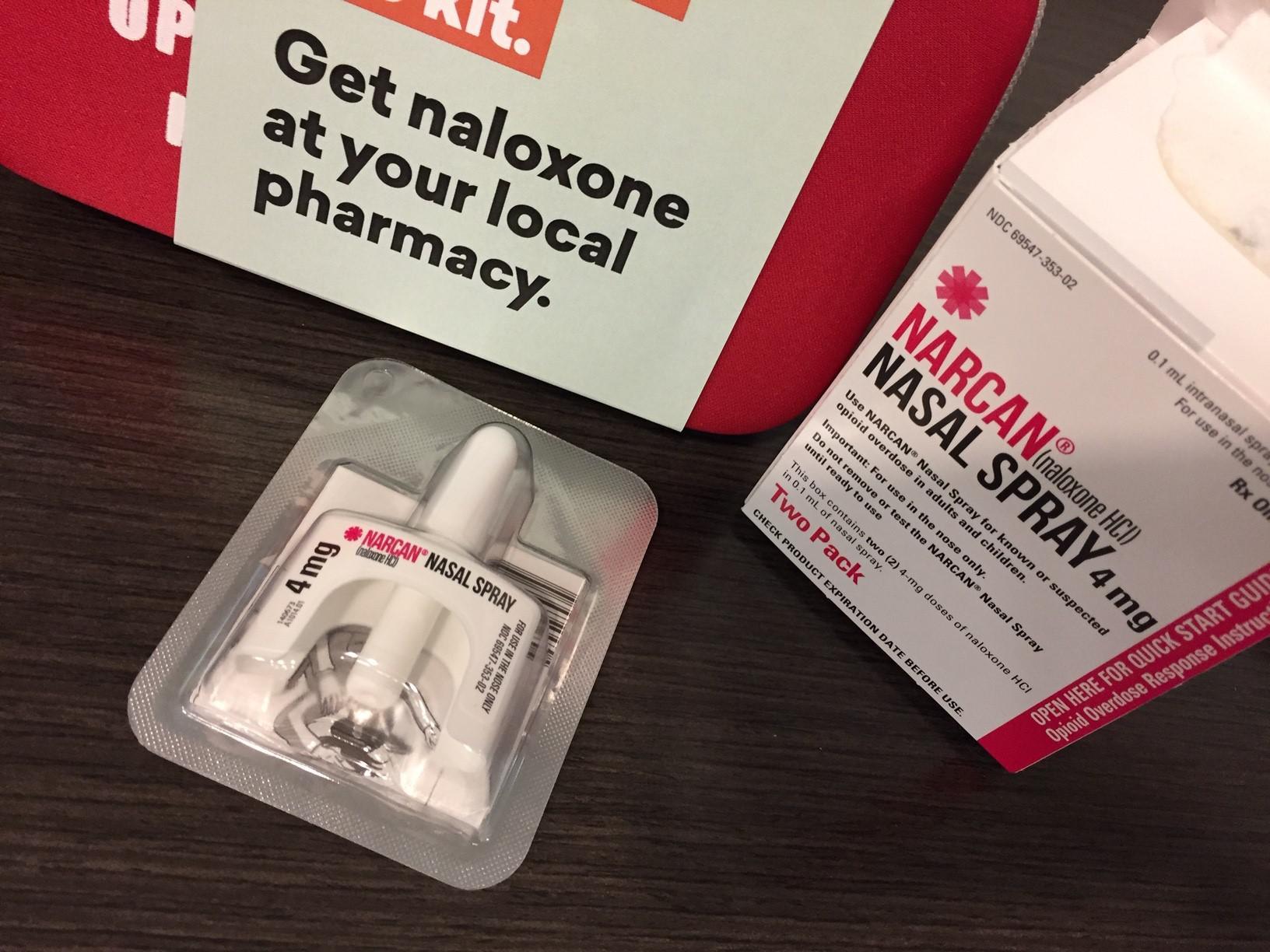
Naloxone can be used to reverse an opioid overdose. Organizations in the Pacific Northwest want it to be more accessible.
Kristian Foden-Vencil / OPB
Naloxone can be used to reverse an overdose from opioids such as fentanyl. While the drug is available over the counter at pharmacies, some advocates say that’s not enough. Organizations in the Pacific Northwest are working on making the drug even more accessible.
Ellen Wirshup is the program manager for Project Red. It offers naloxone and trainings on how to use it to restaurants, bars and other establishments. Max’s Mission in Southern Oregon is also working to expand access to this life-saving drug amid a spike in opioid overdoses in the region. Last month, Jackson County released a public health alert in response to opioid overdoses there.
“I want it to be on every street in every bar, in every restaurant, in every coffee shop, in everybody’s household …So we can prevent more needless deaths,” Wirshup said.
Wirshup has been in recovery for nearly three years. After losing a close friend more than a year ago to fentanyl poisoning, her grief and anger spurred action.
“I just decided to grab a case of Narcan from the Alano Club and walked to the bars in that neighborhood and asked them if they wanted to know how to use it,” she said. “It’s grown in tremendous ways that I couldn’t have imagined.”
Narcan, a brand name version of naloxone, is generally considered to be safe and easy to administer as a nasal spray during a suspected opioid overdose.
Wirshup also mails naloxone across the state through NEXT Distro, an online and mail-based harm reduction service that aims to reduce opioid-related overdose deaths. Still, she runs into concerns over access, especially for those who don’t have a mailing address or P.O. box.
For other organizations, the goal is to get naloxone to at-risk individuals after they’ve been treated in a hospital. Stephen Anderson is the chair of the board for The Naloxone Project. The organization has been working on a state-by-state approach with chapters across the U.S., including Washington.
“We need a sustainable system,” Anderson said. “We need to get engagement by advocates in every hospital and every emergency department.”
Meanwhile, in Portland, Wirshup is working on providing more education to kids and families.
“People are still going to engage in substance use,” she said. “We just want to make sure they are as safe and cared for as possible.”
Ellen Wirshup and Stephen Anderson spoke to “Think Out Loud” host Dave Miller. Listen to the full conversation:



